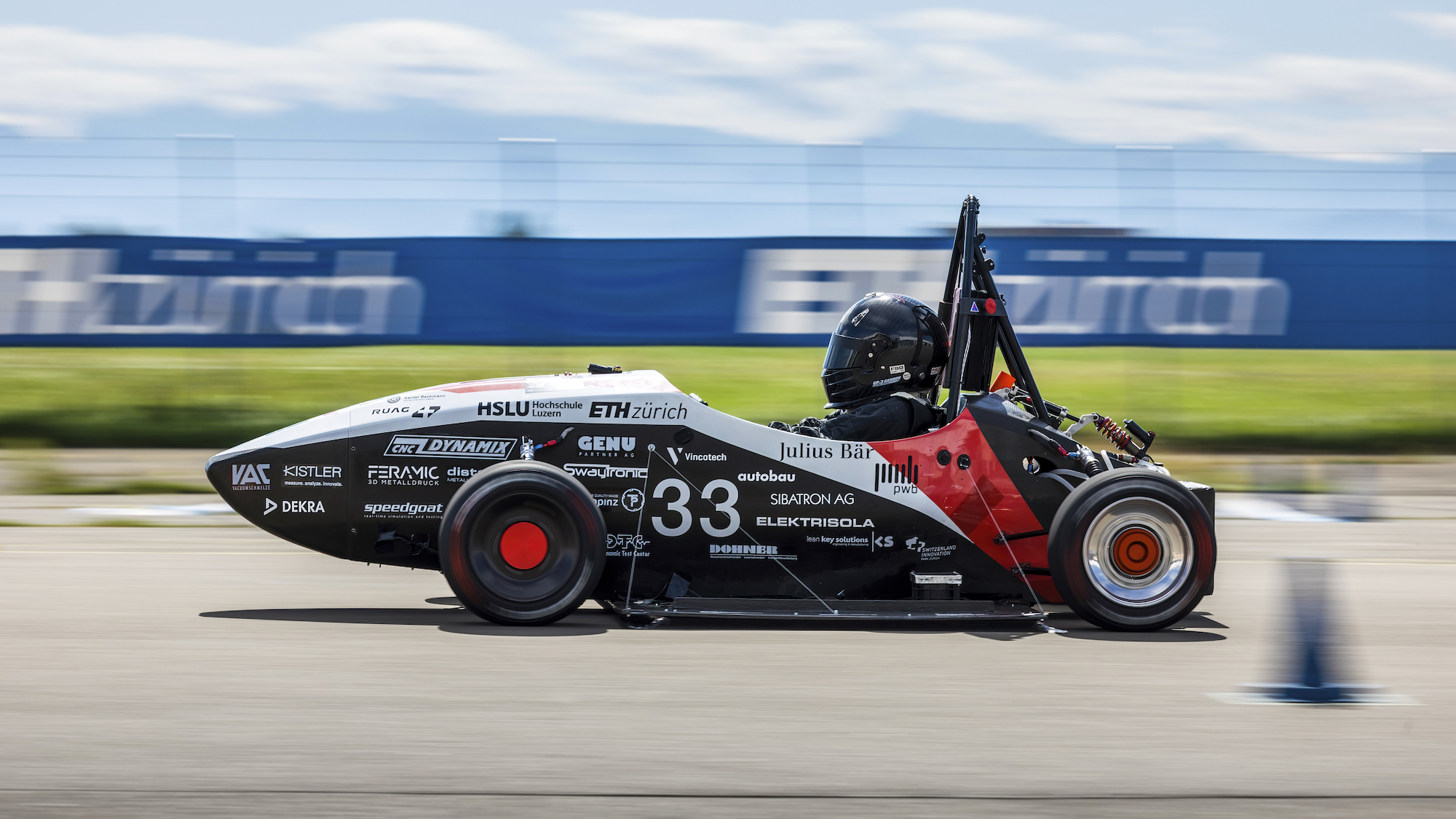

A tiny racing car completely designed and driven by university students has set a new Guinness World Record for fastest acceleration in an electric vehicle. Earlier this month, the miniscule speedster rocketed from 0 to 100 km/h (roughly 62 mph) in just 0.956 seconds, traveling a total distance of 12.3 meters (40.35 feet). The new benchmark time is over a third faster than the previous record set almost exactly a year ago in September 2022 by a team of student designers at Germany’s University of Stuttgart.
Months of design work and testing took place thanks to the members of Academic Motorsports Club Zurich (AMZ), a student organization that has built a new race car every year since its founding in 2006. After three vehicles running on internal-combustion engines, AMZ switched over to completely electric designs in 2010. They’ve adhered to the eco-friendly alternative ever since.
“Working on the project in addition to my studies was very intense. But even so, it was a lot of fun working with other students to continually produce new solutions and put into practice what we learned in class,” Yann Bernard, AMZ’s head of motor, said in the team’s announcement on September 12. “And, of course, it is an absolutely unique experience to be involved in a world record.”
[Related: How Formula E race cars are guiding Jaguar’s EV future.]
The AMZ team’s newest iteration, dubbed mythen [sic], were entirely designed and optimized by the university students. Among its many impressive attributes, mythen boasts a carbon and aluminum frame that keeps the vehicle’s entire weight at just under 309 pounds. Specialized four-wheel hub motors alongside a novel powertrain combined to boost the race car via around 326 hp.
From an aerodynamic standpoint, mythen is so fast and lightweight that it even needed some backup additions to keep it on the race track. Two wings—one in both the front and rear—helped push the car towards the ground. Students meanwhile also designed and installed a “kind of vacuum cleaner” to help hold the vehicle on the road via suction, according to the team’s announcement.
“[P]ower isn’t the only thing that matters when it comes to setting an acceleration record,” said Dario Messerli, AMZ’s head of aerodynamics in a statement, “Effectively transferring that power to the ground is also key.”
Before this month, AMZ set the world acceleration record for electric cars twice already—once in 2014, and two years’ later in 2016. Given how quickly these cars seem to run, as well as how frequently they are redesigned and tested, it stands to reason that the team will probably be fending off competitors in the very near future.
